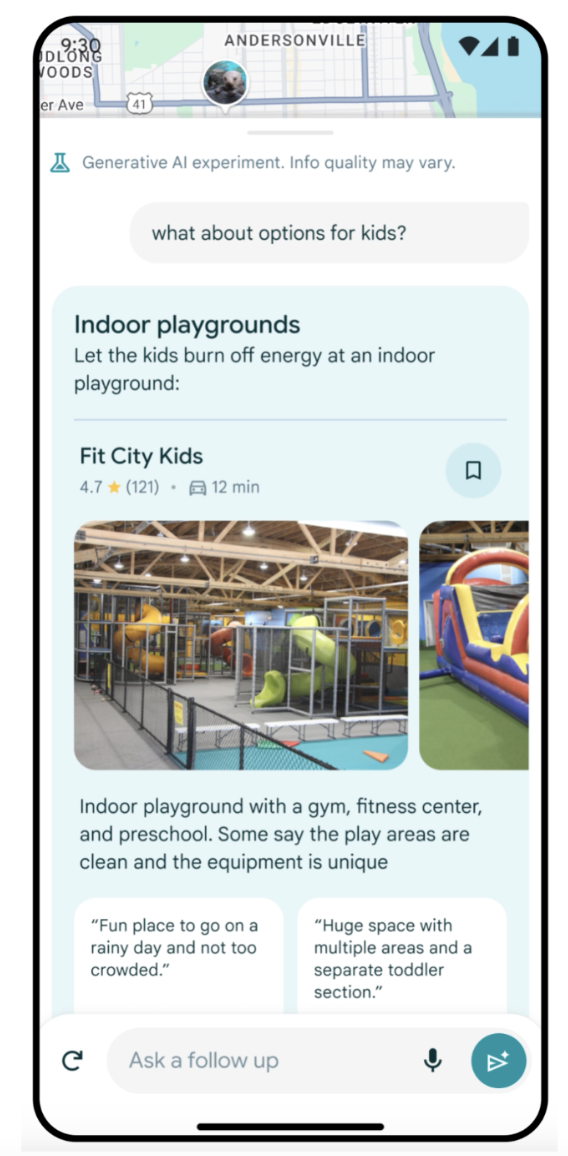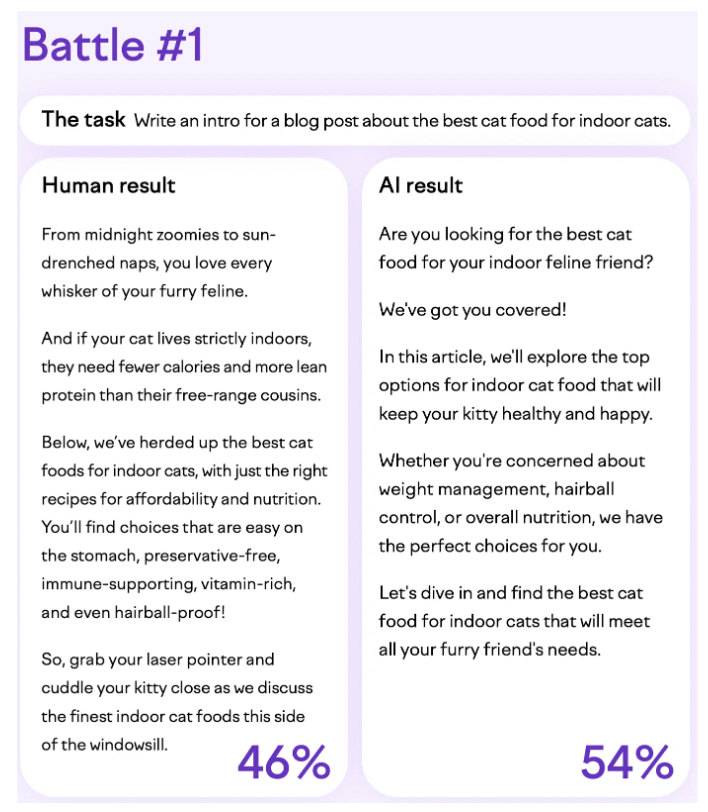Generative Engine Optimization (GEO): Mastering AI-Driven Search in 2025
Local Memo: Google Maps Gets an AI Upgrade
Local Memo: Google Maps Gets an AI Upgrade
In this week’s post, learn about a new AI upgrade for Google Maps; the launch of Google Gemini; Meta’s AI labels for images; a surprising user preference for AI content; and a new factor in Core Web Vitals.
Google Maps Gets an AI Upgrade
Google has announced that generative AI is coming to Google Maps. According to a blog post, Maps will suggest places to go based on analysis of local profile content: “Simply say what you’re looking for and our large-language models (LLMs) will analyze Maps’ detailed information about more than 250 million places and trusted insights from our community of over 300 million contributors to quickly make suggestions for where to go.”
Select Local Guides will see the feature first, in what Google calls a “controlled access experiment.” The post offers the example prompt “places with a vintage vibe in SF,” noting that AI will focus on the “rich information” in profiles, including photos, reviews, and ratings. AI suggestions can be saved in a list for future reference, and can be modified in light of changing circumstances, such as weather.

Courtesy Google
Google Launches Gemini, Rebrands Bard
Google is rebranding the Bard chatbot with the name Gemini, a brand that will also cover additional offerings. In particular, Google is launching a paid subscription service that will utilize the company’s most advanced generative AI model and will incorporate additional features such as coding support, similar to OpenAI’s ChatGPT Plus. A new Gemini app will give users mobile access to the chatbot, and Google says Gemini will be integrated into Workspace tools like Gmail as well as Cloud services.
Meta to Place AI Labels on Images
Look for new labels in Meta platforms that identify AI-generated content. Meta announced that these are coming to Facebook, Instagram, and Threads, to help users identify content generated by AI. The notices will appear in multiple languages, and will make use of Meta technology that identifies watermarks and metadata in images. Meta is also requiring users to disclose that media posted to its platforms has been generated by AI. Businesses are encouraged to be proactive and identify AI generated images when posting.
Humans Seemingly Prefer AI-Written Content, Study Finds
Semrush has released a consumer survey that, among other things, indicates that consumers seem to prefer content written by AI. Asked to choose between two pieces of content on the same topic, one written by humans and other by AI, a majority picked AI for blog content, social media posts and ads, and product descriptions. Of course, this was a response based on very limited examples, but it could indicate that AI is good at writing helpful content that gets to the point.

Courtesy Semrush / Search Engine Land
Google Will Add a Factor to Core Web Vitals
In March, Google will add a new factor to Core Web Vitals, the set of usability and speed measurements that are not a direct ranking factor but impact page experience and influence ranking to some extent. The new factor is called Interaction to Next Paint (INP), and it will replace First Input Delay (FID). Barry Schwartz reminds us: “Just keep in mind, page experience is not a system, but rather a good page experience is part of the overall core ranking system.”




